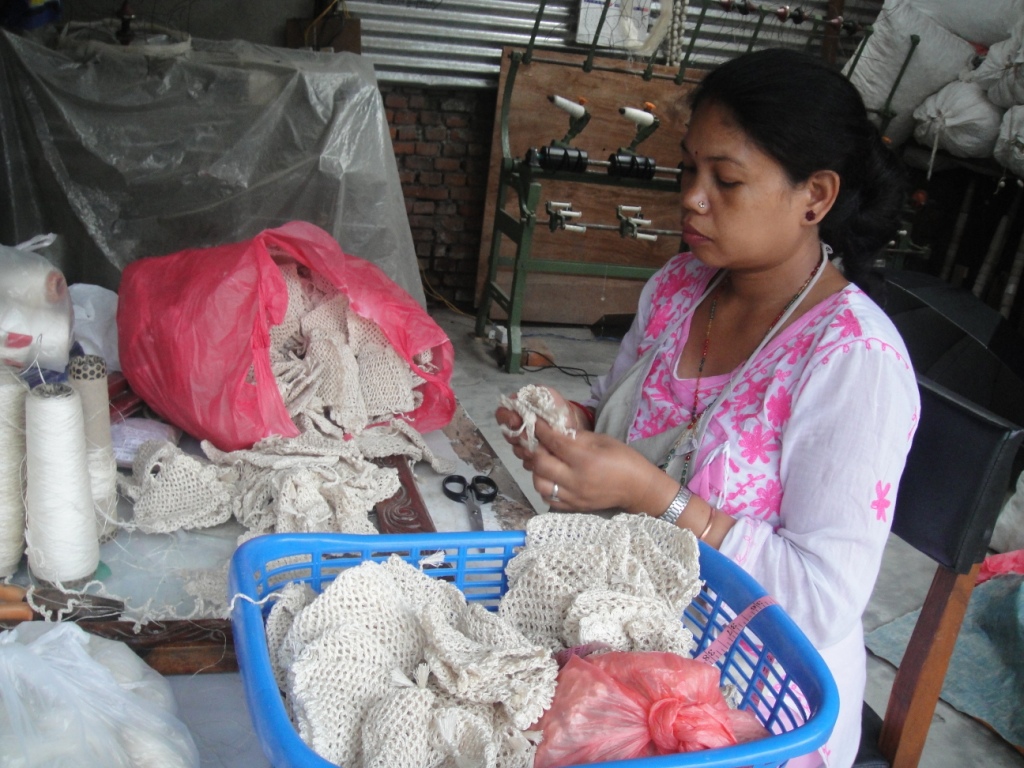Featured Artisan: Nepal Silk
 Mohinee of the group Nepal Silk realized in 2013 that following the introduction of sericulture in rural villages of Nepal (as recent as 25 years ago)there was very little focus on post cocoon activities. For this reason she decided to invest her energy and time in providing economic empowerment and opportunity to women in Nepal through post cocoon production. She focused mainly on producing Reeling (“the process by which a number of cocoon baves are reeled together to produce a single thread. This is achieved by unwinding filaments collectively from a group of cooked cocoons at one end in a warm water bath and winding the resultant thread onto a fast moving reel”), Zaguri (hand made silk yarn using an ancient Japanese technique usually using waterwheels) and hand spun yarn as well as it’s different products and by-products, including the soap offered by Ganesh Himal Trading.
Mohinee of the group Nepal Silk realized in 2013 that following the introduction of sericulture in rural villages of Nepal (as recent as 25 years ago)there was very little focus on post cocoon activities. For this reason she decided to invest her energy and time in providing economic empowerment and opportunity to women in Nepal through post cocoon production. She focused mainly on producing Reeling (“the process by which a number of cocoon baves are reeled together to produce a single thread. This is achieved by unwinding filaments collectively from a group of cooked cocoons at one end in a warm water bath and winding the resultant thread onto a fast moving reel”), Zaguri (hand made silk yarn using an ancient Japanese technique usually using waterwheels) and hand spun yarn as well as it’s different products and by-products, including the soap offered by Ganesh Himal Trading.
Nepal Silk is now empowering women at multiple stages of the production process, starting with the mulberry plantations which sustain the silkworms while also providing natural material for dyes and scents. Cocoon production which like the mulberry plantations provides much needed economic stimulus to rural villages of subsistence farmers. Once the silkworms leave their cocoons, the cocoons are gathered, processed and spun into yarn. This year is then brought to Kathmandu where it is woven or crocheted into finished products. Furthermore, Nepal Silk employs women in their Kathmandu office to assist with quality control and marketing.
According to Nepal Silk, their impact on community women’s lives are:
- Increased women and farmers income level and assistance in increasing their economic status;
- Utilized the underutilized labor in different communities through silkworm rearing;
- Utilized their leisure time in productive activities;
- Women are now participating in decision making within their communities;
- Women are using their earnings for their family and children for education;
- Exposure for product in international markets;
- Protection fo the environment through Mulberry plantation and soil conservation, providing economic incentive to maintain these ecologies
